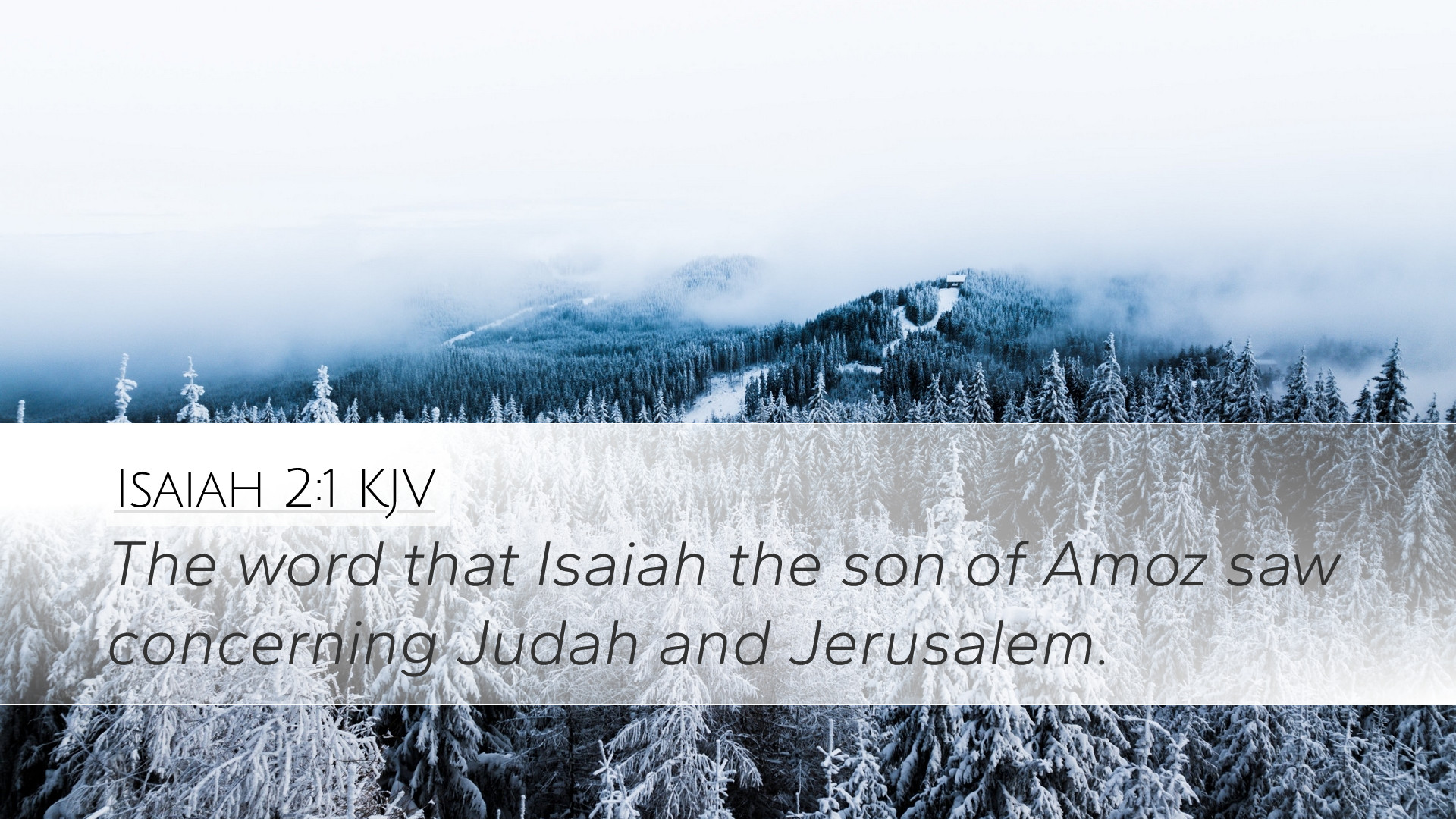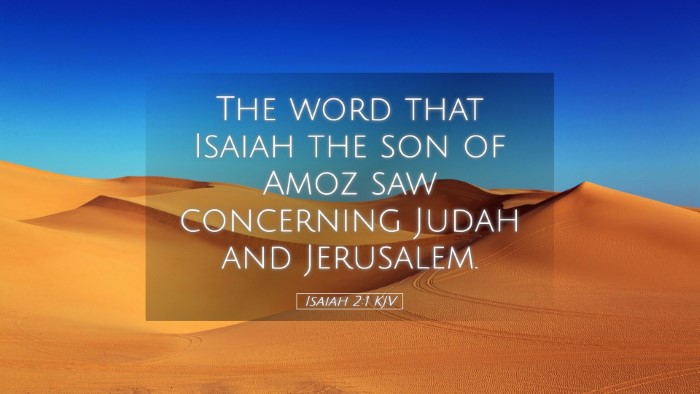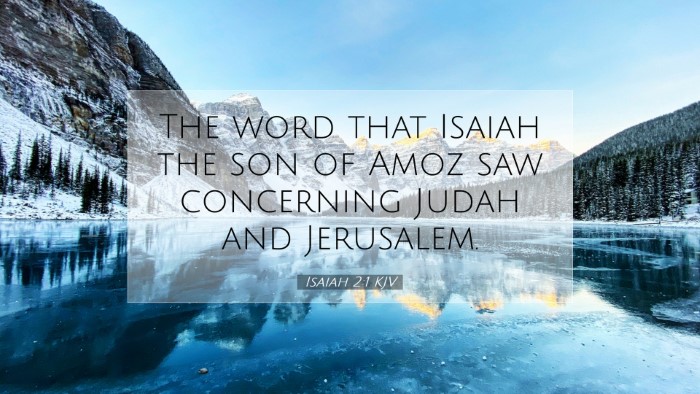Commentary on Isaiah 2:1
Overview of Isaiah 2:1
The verse Isaiah 2:1 states: “The word that Isaiah the son of Amoz saw concerning Judah and Jerusalem.” This introduction sets the stage for a prophetic vision concerning the people of Judah and their capital city, Jerusalem. This prophecy contains deep theological significance and implications for both immediate and eschatological understanding.
Contextual Background
Isaiah, a major prophet in the Old Testament, speaks from a historical context of looming judgment and the hope of restoration. His ministry spanned a significant period during the reigns of several kings in Judah, a time marked by political instability, social injustice, and spiritual disarray. Understanding this context is crucial for interpreting the intent and message of Isaiah 2:1.
Insights from Matthew Henry
Prophetic Vision and Divine Authority
Matthew Henry emphasizes that Isaiah’s prophetic vision flows from divine revelation. He highlights the gravity of Isaiah’s role as a messenger of God, underscoring that the visions he received were to instruct, admonish, and ultimately guide the people of Judah. For Henry, the term “saw” indicates a deep spiritual encounter—a vivid illustration of prophetic insight into the realities of both judgment and restoration.
Reflections from Albert Barnes
Judah and Jerusalem as Central Themes
Albert Barnes points out that this verse specifically roots the prophecy in the context of Judah and Jerusalem, emphasizing their importance in God's redemptive plan. He posits that the reference to the “word” indicates a divine communication meant to awaken the people to their spiritual condition. Barnes suggests that this prophecy anticipates a future glorious state wherein the house of the Lord will be established, representing hope amid impending turmoil.
Understanding from Adam Clarke
Importance of the Prophetic Message
Adam Clarke elaborates on the significance of the prophetic message delivered by Isaiah. He notes that the prophecy is not merely a forecast of events but serves as a call to repentance and awakening for the people of Judah. Clarke underscores that Isaiah’s visions carry the gravitas of God’s intentions for His people, urging them towards a reformation of heart and spirit.
Theological Implications
The Sovereignty of God
This verse reveals the sovereignty of God in shaping the destiny of nations. The visions granted to Isaiah serve a purpose not solely for Judah's historical context but also resonate through time, illustrating God's ongoing engagement with humanity. The expectation that God fulfills His word instills a sense of hope that transcends immediate circumstances.
Eschatological Significance
Future Fulfillment of Prophecy
The opening verse of Isaiah foreshadows an eschatological reality—the ultimate restoration of Zion. Throughout the book of Isaiah, this theme of hope culminates in an expectation of a messianic fulfillment that has implications for Christian eschatology. As students and scholars draw connections between the prophetic text and its New Testament fulfillment, a deeper understanding of God's redemptive purposes emerges.
Application for Today
Call to Reflection
Isaiah 2:1 serves as a poignant reminder for contemporary believers, especially pastors and theologians, to assess the spiritual condition of their communities. It invites reflection on the ways God's word speaks to the present realities of social injustice and individual spiritual apathy.
- How does this prophetic vision challenge us to reconsider our priorities, both personally and ecclesiastically?
- In what ways does the hope presented in Isaiah inspire active engagement in promoting justice and mercy within our communities?
- What steps can we take to ensure that we are not only hearers but doers of the Word, responding to God’s call for reform and renewal?
Conclusion
In conclusion, Isaiah 2:1 is not merely an introductory statement but a profound invitation to engage deeply with the realities of God's sovereignty and prophetic promise. The insights from Matthew Henry, Albert Barnes, and Adam Clarke collectively enrich our understanding, guiding us toward meaningful application in contemporary contexts. Engaging with this text can lead to transformation, urging us to reflect the hope of Zion in our lives and communities.


